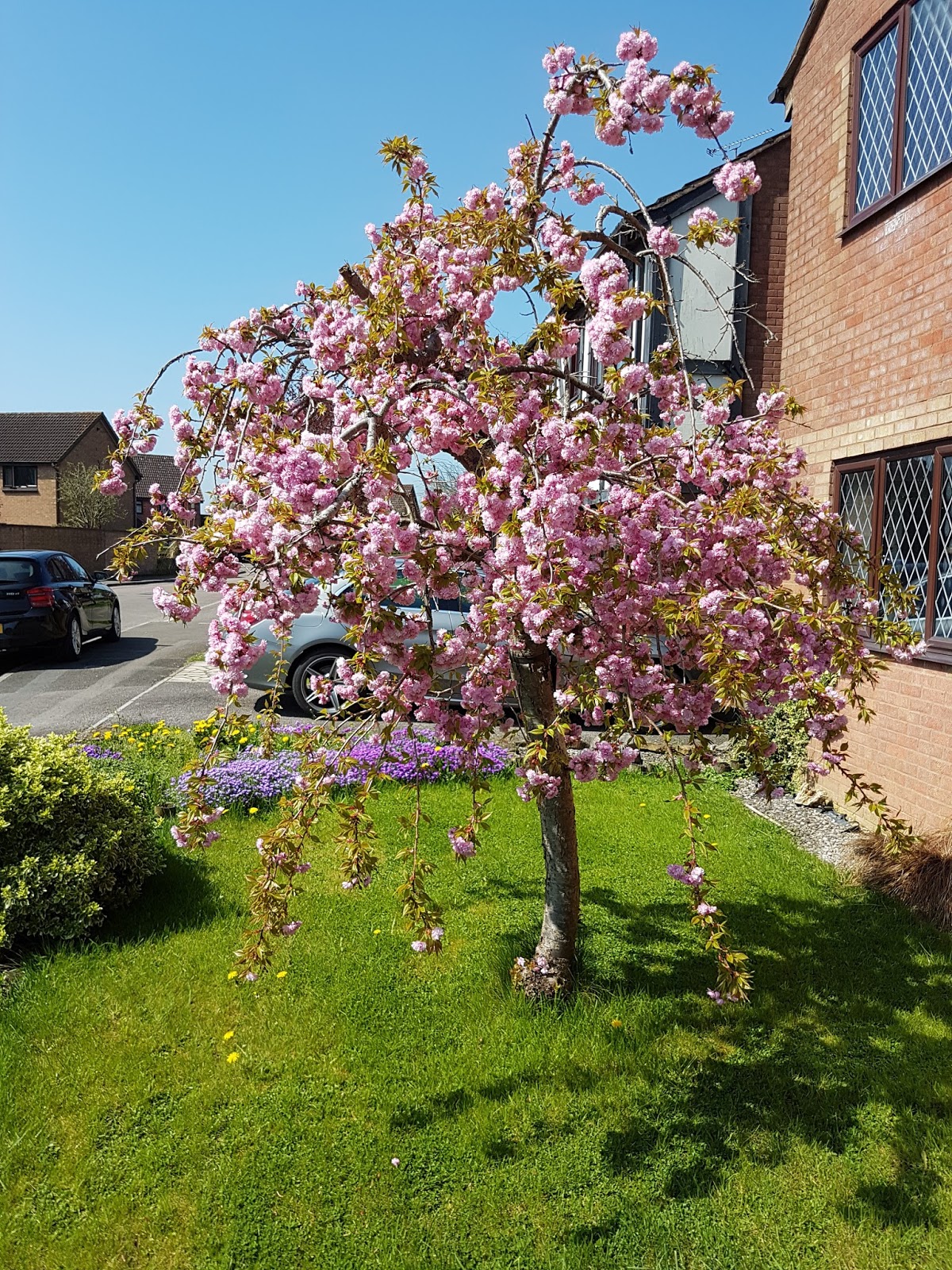
Michael Peverett Prunus 'Kikushidarezakura'
The new foliage of Prunus 'Kiku-shidare-zakura' emerges a pretty bronze colour, before maturing to green throughout the summer. As autumn approaches the foliage turns to orange-bronze, glowing like a beacon on bright autumn days. Height and spread: 4m (13').
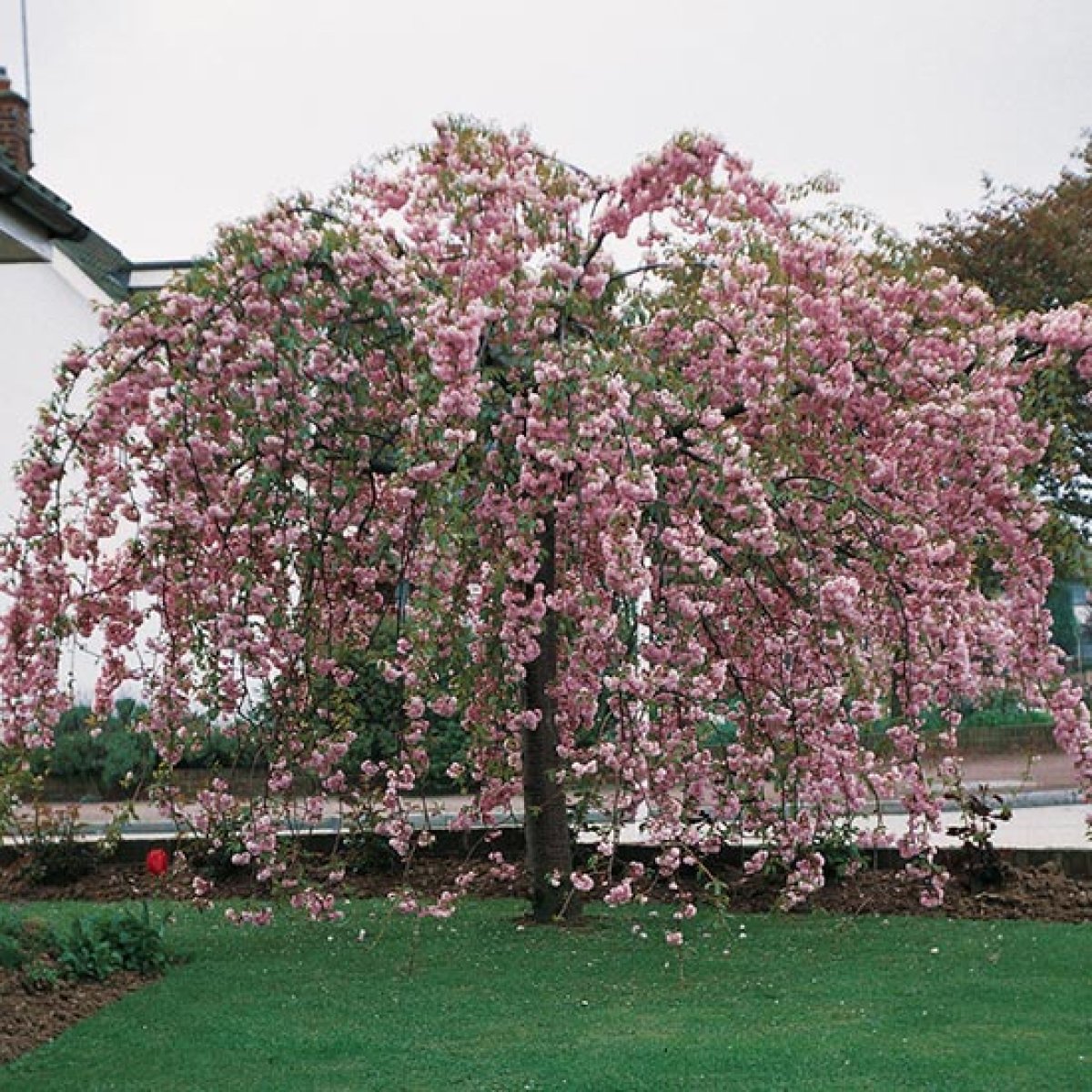
Prunus 'Kikushidarezakura' (Weeping Japanese Cherry)
One of the most popular weeping trees is the Prunus serrulata 'Kiku-Shidare-Zakura,' or Japanese Weeping Cherry. Many weeping cherry blossom tree cultivars have year-long interest. Some types of trees have glossy green lanceolate leaves on cascading branches that provide shade in the summer.
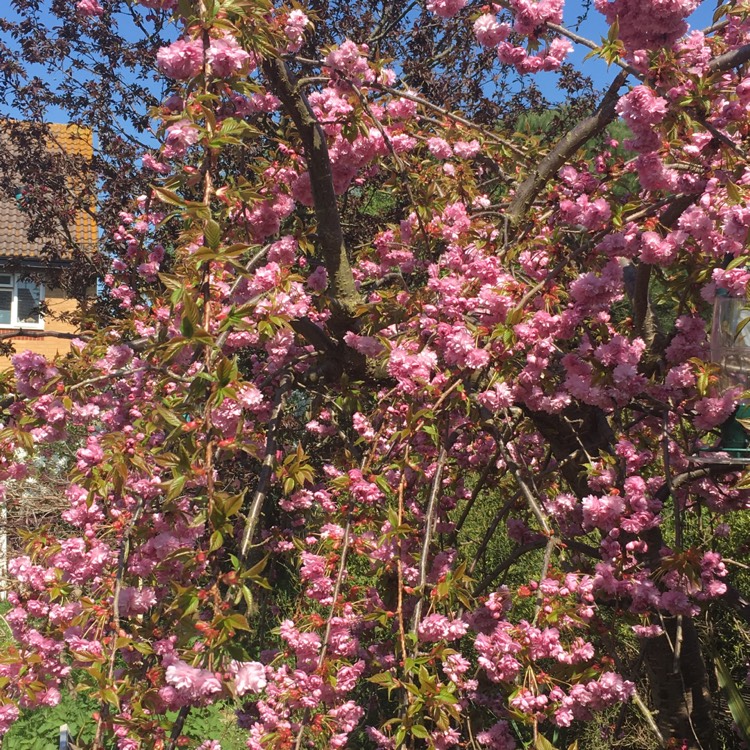
Prunus Serrulata 'KikuShidare Zakura', Weeping Flowering Cherry Tree uploaded by raregold71
'Kiku-shidare-zakura' is a small deciduous tree, the branches arching from the trunk. Leaves bronze when young, later glossy green. Flowers fully double, rich pink, to 3.5cm wide, in late spring Synonyms Prunus 'Shidare-zakura' Prunus serrulata 'Rosea' see more Prunus 'Kiku-Shidare' Join the RHS today and save 25% Join now < > © RHS 1999

Višeň japonská KIKU SHIDARE ZAKURA 170 cm zahradní obchod Moravske Sady
DETAILS STYLE CARE Care Follow a regular watering schedule during the first growing season to establish a deep, extensive root system. Watering can be reduced after establishment. Prune for shape and structure after flowering. HISTORY Lore The name of this plant, 'kiku-shidare-zakura' translates from the Japanese as "weeping-chrysanthemum-cherry."

Buy Cheal's Weeping Pink Flowering Cherry Tree 45ft,P.Serrulata Kiku Shidare Zakura 6L Pot
Prunus 'Kiku-shidare-zakura' is a popular and elegant, small weeping cherry tree with arching branches which are covered with bright pink, double flowers in spring. The leaves are bronze when they first emerge in spring, turning a dark green later in the year. A trained, mature plant can look a little like a fountain of trailing branches and bloom when in full flower.

Michael Peverett Prunus 'Kikushidarezakura'
The right time to plant Prunus 'Kiku-shidare-zakura' is during the dormancy period. In Western Europe, Prunus 'Kiku-shidare-zakura' with root balls can generally be planted from mid-November to late April, although this depends strongly on the climatic conditions and the species of tree.

Arriba 97+ Foto Prunus Serrulata Kikushidarezakura Mirada Tensa 09/2023
'Kiku-shidare-zakura' means 'Weeping Chrysanthemum Cherry' in Japanese. Prunus Growing Tips: Best grown in well-drained soil, in full sun to achieve the best flower display and autumn colour. Will tolerate most soil types including chalk and clay. Height and Spread (after 10 years): 2.5m x 2.5m Customers Also Bought… Prunus 'Accolade'

Prunus Kikushidarezakura
'Kiku-shidare-zakura' (weeping chrysanthemum cherry). This Sato-zakura (Japanese village cherry) is similar to and perhaps indistiguishable from 'Cheal's Weeping' cherry, which is more often mentioned in the English-language ornamental cherry literature. These chrysanthemum-flowered cherries may be confused with other pendulous double-flowered cherries, such as P. subhirtella var.
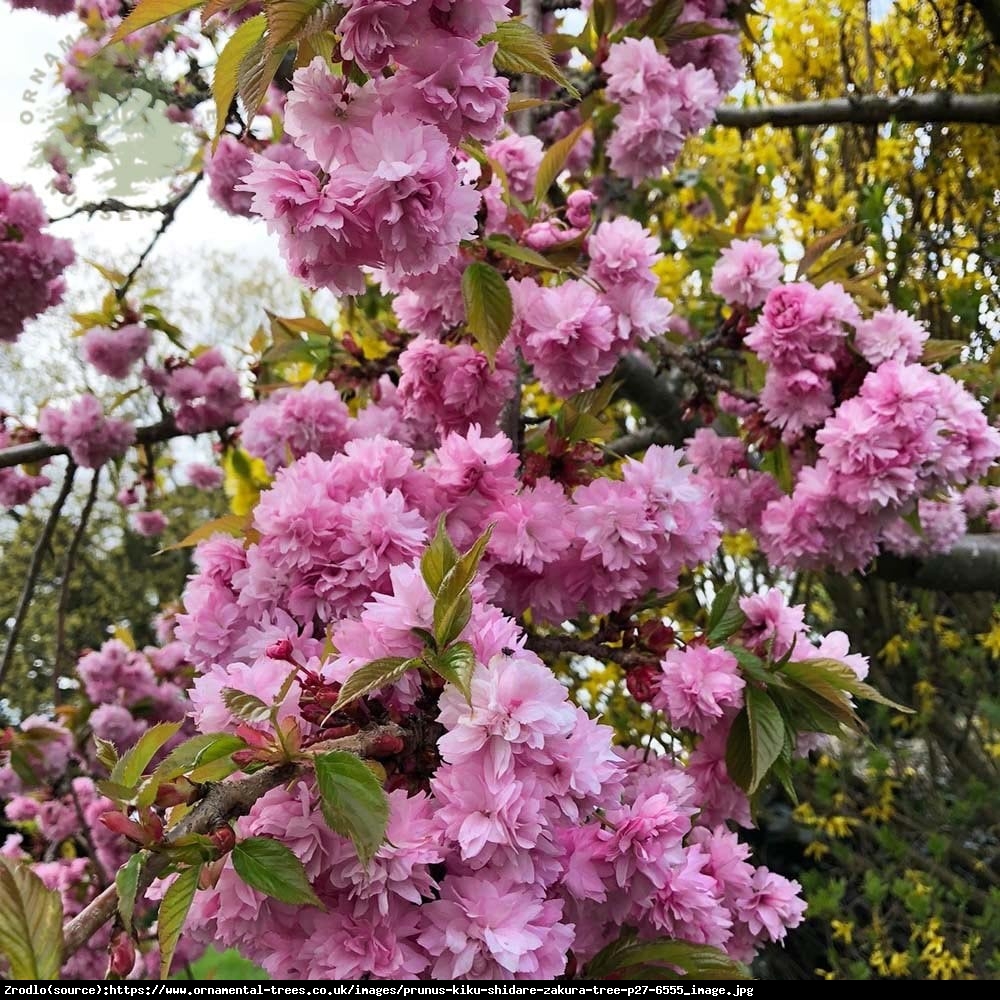
Wiśnia piłkowana kikushidarezakura Prunus serrulata kikushidarezakura
Prunus 'Kiku-Shidare-Zakura', more commonly known as Cheals Weeping Cherry, has bright pink double flowers in Spring, and has bronze-coloured emerging foliage that turns green, and then in Autumn gives a good display of bronze and orange. Contributed by @ErinMc plant Features Full sun Occasional watering Full Frost Hardy: 5F (-15°C)
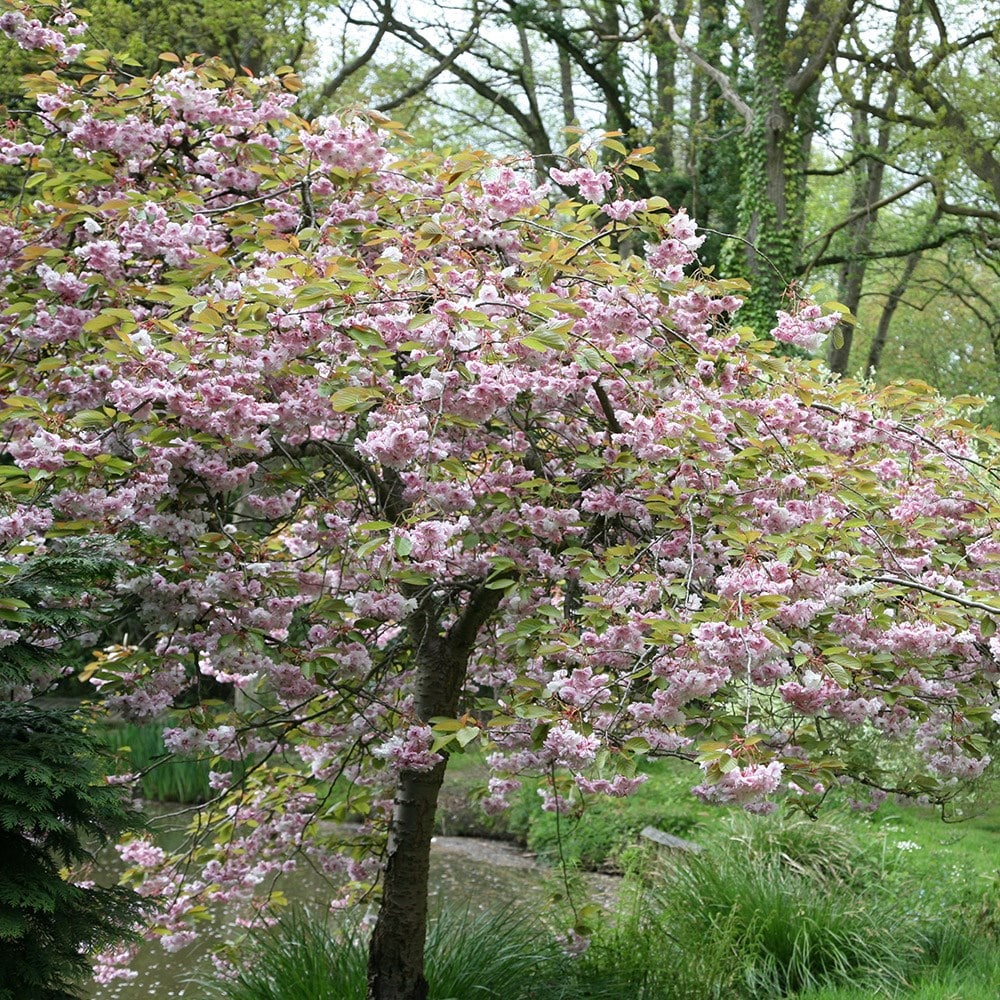
Buy flowering cherry blossom tree ( syn. Prunus 'Shidarezakura' ) Prunus 'Kikushidarezakura
A favorite of many gardens, Prunus 'Kiku-Shidare-Zakura' is a small deciduous tree with gracefully arching branches smothered with charming, fully double, rich pink flowers in mid to late spring. The abundant blossoms, 1.5 in. across (3.5 cm), are packed with up to 125 elliptic petals (!), giving them the look of a powder puff.

Prunus serrulata 'Kikushidarezakura', Hängende Nelkenkirsche 'Kikushidarezakura'
The cascading blossoms in High Poly Kiku-Shidare-Zakura (Weeping Cherry, しだれ 桜) 3D Model. Compatible with 3Ds Max, SketchUp, Twinmotion, and C4D! Discover Globe Plants' 3D Prunus 'Kiku-Shidare-Zakura' commonly recognized as the Weeping Cherry or しだれ桜. This 3D vegetation masterpiece is essential for landscape designers.
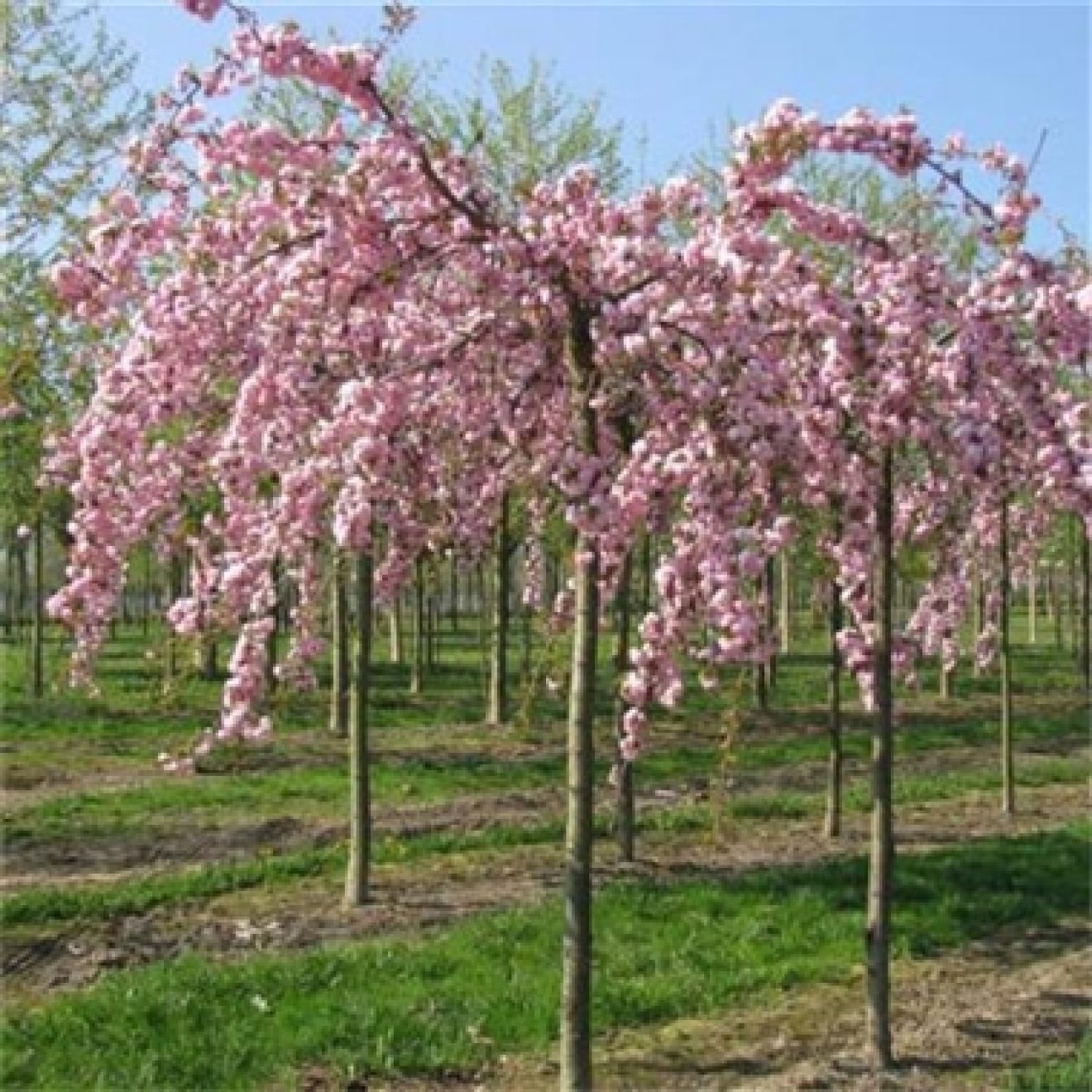
Prunus Serrulata Kiku Shidare Zakura Cerisier Japonais My XXX Hot Girl
This is the classic Japanese weeping pink cherry blossom tree (sometimes known as Cheal's Weeping Cherry). Flowering cherry - Kiku-shidare-zakura Tasting notes, fruit identification, flavors, and relationships of hundreds of fruit varieties, plus orchard listings.
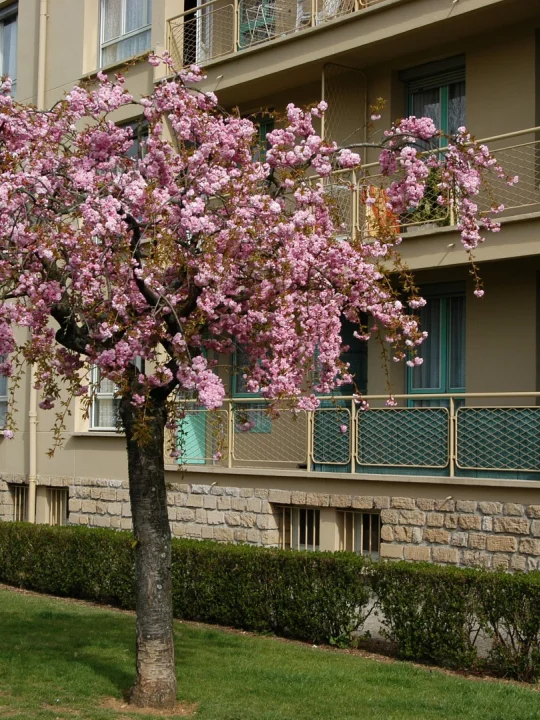
Prunus 'Kikushidarezakura' Prunus 'Kikushidarezakura' Van den Berk Nurseries
Variety or Cultivar. 'Kiku shidare-zakura' is a compact, arching to weeping, deciduous tree with ovate to lance-shaped, mid-green leaves, bronze when young, and clusters of double, pink flowers in late spring.
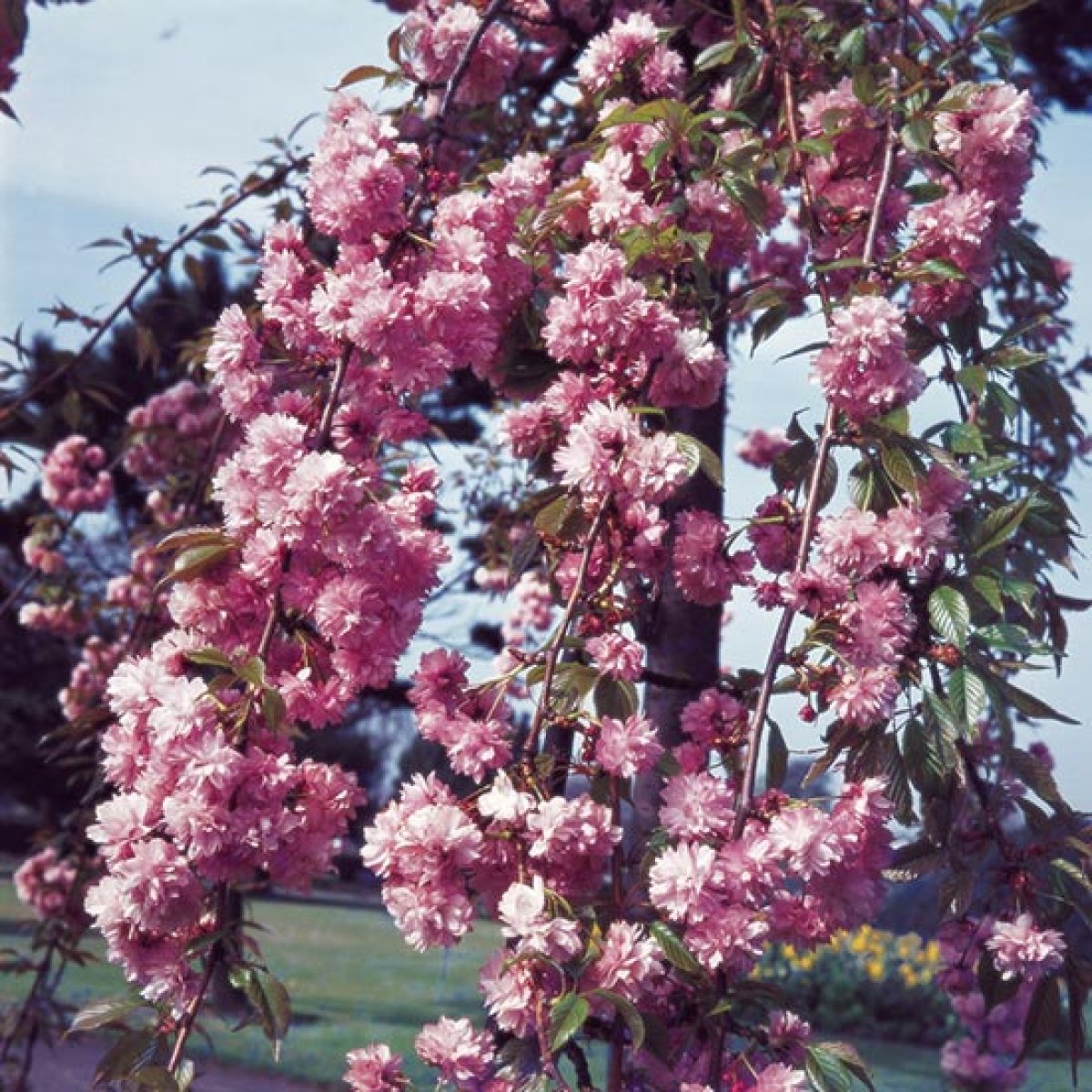
Prunus 'Kikushidarezakura' (Weeping Japanese Cherry)
Prunus 'Kiku-Shidare-Zakura': A cherished garden favorite. This small deciduous tree features graceful arching branches covered in charming, rich pink double flowers with up to 125 elliptic petals. The lush blooms appear in clusters, creating a captivating display.

Prunus serrulata 'Kikushidarezakura', Stamm, Hängende Nelkenkirsche 'Kikushidarezakura
The most spectacular dwarf weeping cherry tree is the Japanese cherry tree 'Kiku-Shidare-Zakura'—or sakura for short. These small trees have large stunning pink blossoms with masses of ruffled petals, making the cherry flowers look like powder puffs. Weeping cherry blossom trees produce fruit, but it's small, sour, and inedible.

Japanische HängeNelkenkirsche 'KikushidareZakura' Prunus serrulata 'KikushidareZakura
Prunus Kiku-Shidare-Zakura is one of the prettiest of the weeping Japanese flowering cherry trees, and is well-suited to the UK climate. The flowers are an intense deep pink colour, and borne in great profusion. Kiku-Shidare-Zakura flowers typically have far more petals per flower than the 25-50 of the more common "double" flowered varieties.